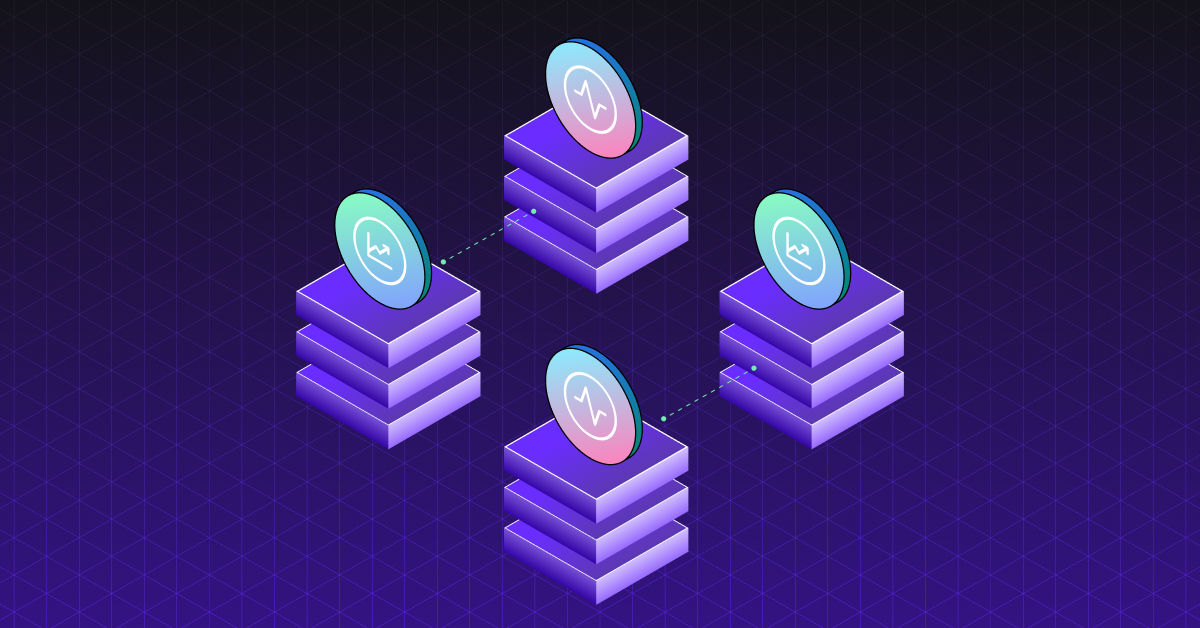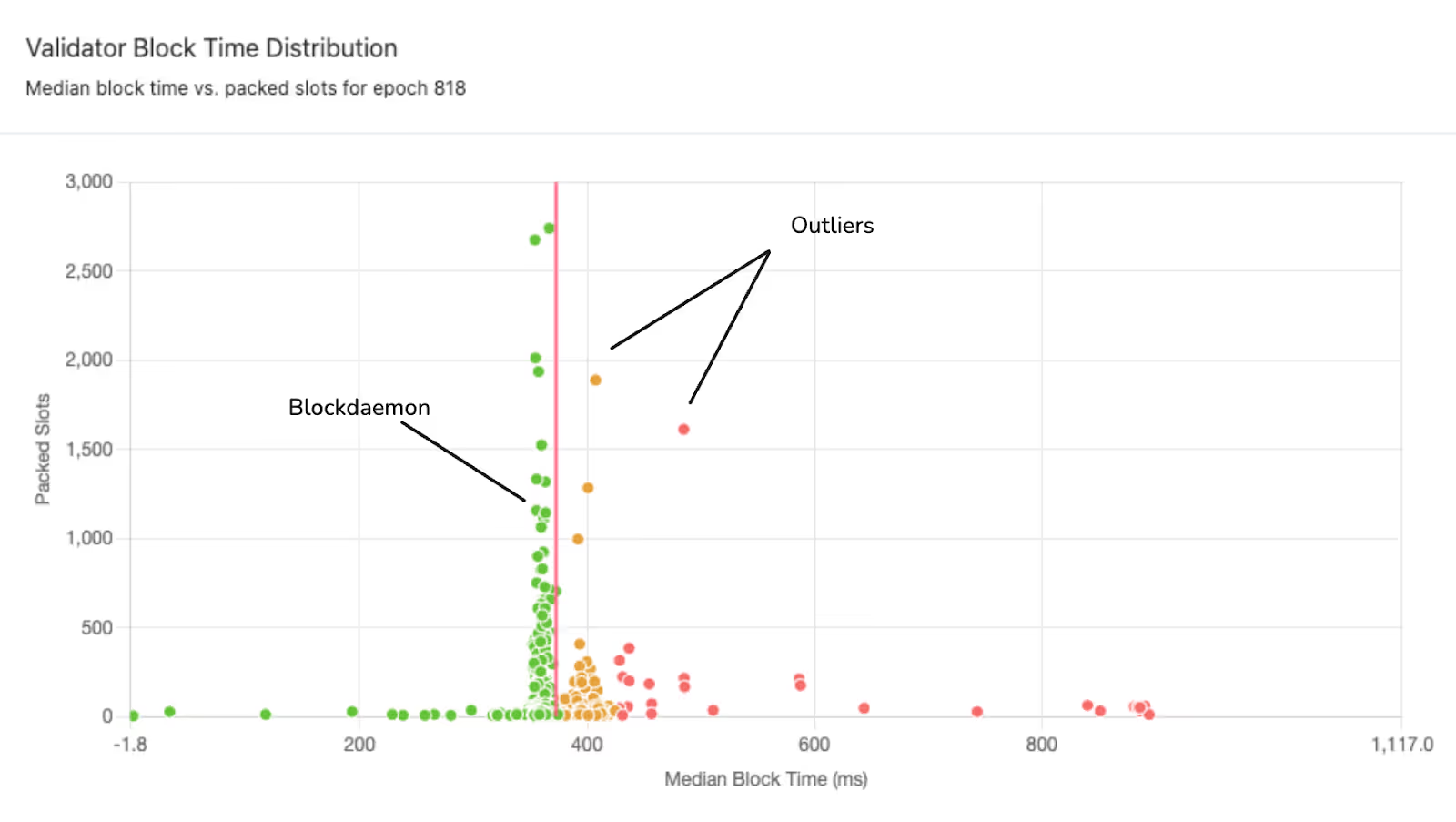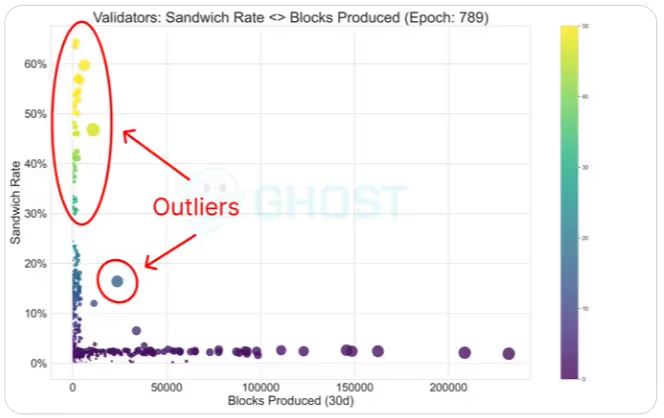Get Started with
Blockdaemon Today!
Contact us to learn how we can help you power your blockchain business.



Blockdaemon’s MEV analysis on Solana shows that aggressive tactics may boost short-term profits but harm long-term network health. In this blog, learn how ethical validator practices can maintain strong rewards, while supporting sustainable, long-term network success.

Validators in proof-of-stake networks serve dual roles. They secure the network through consensus participation and receive staking rewards, while also proposing new blocks and earning block rewards. However, the pursuit of maximum rewards can sometimes conflict with network health, where short-term profits may undermine long-term ecosystem value. This has become increasingly complex as sophisticated MEV strategies emerge, especially in high-throughput networks like Solana. Recent reports show specific instances where actors exploited timing games that delay the network, raising concerns about fairness, stability, and validator integrity. These incidents, which we explore further in the case studies below, underscore why adhering to network guidelines is essential not only ethically but also for the ecosystem’s long-term sustainability. Blockdaemon aligns its validator operations with these principles and the broader community to support a resilient, equitable network.
Timing games represent a subtle but significant threat to network health. In these scenarios, validators delay their participation in consensus to gain informational advantages or manipulate block times to increase transaction throughput.
Vote Timing Manipulation: Validators might strategically time their votes to maximize their influence on network decisions or to benefit from information asymmetries. This undermines the randomness and fairness that underpin proof-of-stake security.
The Solana Foundation has responded to these challenges by implementing Timely Vote Credits (TVC, SIMD-033) in 2024, rewarding validators for voting quickly and consistently. This mechanism directly addresses timing games by incentivizing prompt participation rather than strategic delays.
The following charts illustrate Blockdaemon’s vote credit earnings, which reflect our consistent and ethical participation in network consensus. Blockdaemon’s metrics have consistently remained above the network average.
.avif)
Some validators may delay block production to gather more profitable transactions or to better position themselves for MEV opportunities. While this increases MEV rewards, such behavior creates latency issues and can degrade user experience across the network. This tension is particularly pronounced on Solana. The network’s high throughput and fast block times make it especially sensitive to delays. Even minor disruptions, such as validators intentionally stalling block production to optimize MEV capture, can heavily impact network performance, user experience, and consensus stability. As Solana matures, understanding and mitigating these behaviors becomes essential to preserving the protocol’s core value proposition: speed, efficiency, and openness.
The following figure displays average block production time per validator alongside packed slots, which represent each validator's stake weight. Block times at or near 400 milliseconds align with Solana's optimal network performance. Times significantly above 400 milliseconds mark problematic delays, which is particularly concerning when exhibited by high-stake validators who have frequent block production opportunities. The data demonstrates Blockdaemon's commitment to network integrity by consistently maintaining optimal block times rather than exploiting production delays for profit. Unlike validators who may stall block production to capture additional MEV or gain informational advantages, Blockdaemon prioritizes network health and user experience, refusing to sacrifice overall network performance for short-term financial gains.

While timing games pose a risk across blockchains, their impact varies by network architecture. On Ethereum, timing games could pose a risk of missing slots, but do not slow down overall network throughput or block times due to the network’s robust slot schedule. By contrast, on Solana, the consequences are much more pronounced. Solana’s architecture prioritizes ultra-fast block times (around 400 milliseconds) and high throughput, underpinned by a unique Proof of History (PoH) mechanism that depends on consistent time progression for proper block ordering. When validators delay participation, whether by stalling their block production to gain informational advantage or manipulate MEV strategies, this does not just penalize single actors but can degrade the experience for all users by introducing network wide latency, reducing transaction finality, and undermining consensus stability.
Perhaps no MEV strategy has generated more controversy than sandwich attacks, where validators or searchers place transactions before and after a user's trade to profit from the resulting price movements. On Solana, these attacks have reached unprecedented scale. However, this short-term gain comes at the expense of user experience and network credibility.
According to research by Chris Chang (via X/Twitter analysis) @chrischang43, sandwich attack rates are highly concentrated among a few validators, with some exhibiting 20-60% sandwich rates compared to a network median of 2.5%. The data reveals that certain validators maintain sandwich rates of 30% or higher, with at least one validator holding about 1.5M SOL while maintaining an exceptionally high sandwich rate relative to the network sample.

Blockdaemon takes a cautious, compliance-first approach to MEV. We do not support sandwich attacks or other predatory MEV strategies that exploit users. Instead, our MEV policies are designed with regulatory compliance and user protection as primary considerations, ensuring that our validation activities align with evolving regulatory frameworks and ethical standards. This conservative approach may forgo potential short-term profits, but it positions Blockdaemon as a responsible validator that prioritizes network integrity and user trust over maximum revenue extraction.
The evidence from Solana's recent MEV developments reveals a fundamental truth about proof-of-stake networks: sustainable validator economics requires balancing individual profitability with collective network health. While aggressive MEV strategies may offer short-term gains, they ultimately undermine the ecosystem that generates long-term value.
The Solana Foundation's response through Timely Vote Credits and delegation program adjustments demonstrates that network governance can effectively address harmful behaviors without stifling innovation. Validators who prioritize network health over maximum extraction are positioned to benefit from sustained ecosystem growth and continued foundation support.
For institutional validators like Blockdaemon, this presents a clear strategic advantage. By maintaining ethical MEV practices and supporting network stability, these validators can differentiate themselves in a crowded field while contributing to the long-term success of the networks they secure. The data shows that sustainable, network-friendly approaches not only preserve validator reputation but also ensure continued access to delegation programs and community support.
Contact us to learn how we can help you power your blockchain business.


